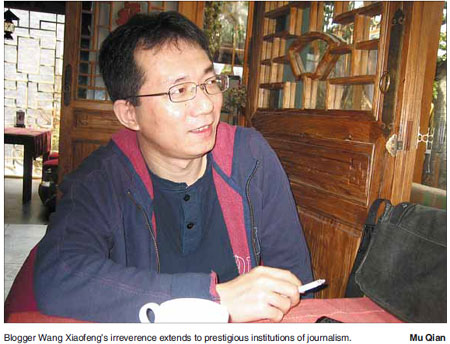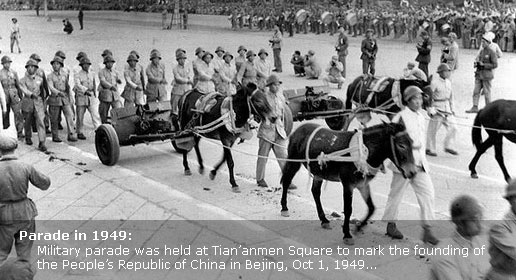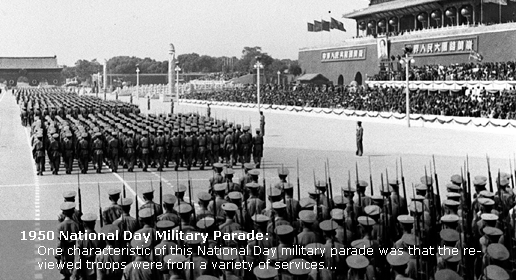60 People, 60 Stories
Own space
By Raymond Zhou (China Daily)
Updated: 2009-09-30 10:42

On March 8, 2006, Wang Xiaofeng shut down his blog.
| ||||
The next day, Reuters publishes a story, saying the Chinese government shut Wang's blog. They could not reach him. So they wrote about what they assumed.
It was exactly what Wang expected. Some time earlier, Reuters interviewed him, but the story that came out depicted him as a kind of dissident. He felt his words were twisted to suit the needs of a Western perspective. So, he came up with a plan to "get even".
Wang is a symbol of irreverence that extends to such prestigious institutions of journalism as Reuters. He is one of the senior writers for Sanlian Life Weekly, one of China's best-selling magazines. But that is not describing even half of him.
Before that prank, he was known as China's best music critic, or at least one of the best. After that, he was hailed as one of the best bloggers. And only a small portion of his blogs is about rock music.

What is certain is, Wang is the most prolific blogger in China. He blogs every day, sometimes three pieces a day. A typical piece is feature-length. It deals with a cultural or social issue by taking a sarcastic jibe that differs from mainstream commentary. His ingenuity with puns is such that a week's output is enough to fill a whole comedy.
That requires his readers to read between the lines and catch the nuances. He does not hide his disdain for the typical blog browser who leaves nonsensical words of praise or encouragement. And he hurls F-bombs as if they were spears in the hands of a martial artist. His webpages ooze with acerbic wit and cynical witticism, but not diplomatic safe play.
In a sense, Wang engages in a brinkmanship that has carved out a niche for self-expression. He has showed that it is not what you say - but how you say it - that determines how much space you have. Some call his style "homegrown satire and irony".
Obviously, Time magazine took notice. At the end of 2006, when Time picked "You" as Man of the Year, Wang was the only Chinese representative featured as a sample.
His irreverence did not stop at Time. A few months later, Wang wrote a blog describing how he bribed the magazine's editor-in-chief into giving him the honor. Not everyone got his humor and many, including Westerners, took it at face value when this newspaper translated it into English.
Wang Xiaofeng represents the tip of the blogosphere iceberg. Most of China's blog postings read like high-school diaries and are of interest to only a coterie of friends and family members. Wang, like other good bloggers, works within the establishment of the press, and understands how the system works better than most. They do not jump up and down and shout "New media are to replace the old!" Instead, they use new media to fill the void left by the old.
When Wang's boss asked him why he did not apply his productivity of blogging to his day job at Sanlian, he replied there was no way the magazine would publish his blog writing.
In China, new media are developing in ways unanticipated by Western experts. Blogs are for everyone, but the best are firmly in the hands of professionals. Fang Xingdong, the "father of Chinese blogging", proposes a clear division between "elitist blogs" like Wang's and "grass-roots blogs".
Wang's blogs get an average of 60,000 readers a day but, as everyone else has seen, his influence goes beyond that number.
Time line
2002
Fang Xingdong opens Blogchina with an infusion of 5 million yuan in angel investment and later an additional $10 million. He is often called the "father of China's blogging" partly because he was responsible for the Chinese term for it.
2004
Li Li, a.k.a. Muzi Mei, posts a collection of true stories of her sex life, causing a jam on the Internet and alerting the online public of the possibilities of blogging.
2005
In September, Sina, China's biggest portal, opens a channel for blogs. It amasses almost all celebrities in the Middle Kingdom, irrevocably reshaping China's blogsphere into one for celebrity gossip and self-promotion. The number of blogs explodes, reaching 16 million.
2008
Fang Xingdong's Blogchina operation is rumored to be near bankruptcy, but he sees it as "strategic contraction", with the number of employees plunging from 200 in its heyday to 30.
2009
The China Internet Network Information Center releases in January that 54.3 percent of Chinese netizens or 162 million people were using blogs by the end of 2008, but only 35 percent were used at least once within six months.








